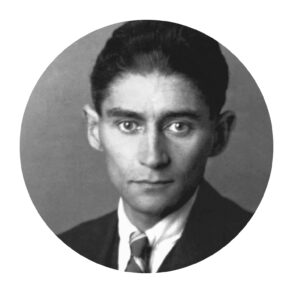My social identity is a sheath, within which my “I” can be effective. My affiliation with the Western world determines the way I can be effective. If I accept responsibility to help all of humanity, this social identity becomes a necessary path of motivation and action.
At the 2023 Goetheanum World Conference, William J. Choi-Gekas, a Canadian with a Korean and indigenous North American cultural background, reported on his initiative at the Peace Forum. He uttered one sentence that finally opened a door to understanding for me: “Taking ownership of your social identity is connected to what should be done in the world.”
When it comes to the cancel culture debate and questions about cultural appropriation, I always struggle a bit with the “style of oppression” that says I should condemn myself for my perhaps simply accidental birth in “white and privileged” Europe. It is difficult to find a language for this discourse or to even be aware of it without feeling attacked. At least, that’s how it feels to me—that I belong to the system of the “oppressors” and should finally recognize and admit that.
But, as an individual, I don’t reduce human beings to their skin color, their gender, their mental and physical conditions, or their educational and financial circumstances. At least not consciously, deliberately, or intentionally. (And I, too, want to be looked at lovingly in my processes of development.) I was also not part of the construction of the colonial system that led to the situation where children still work in coltan mines in the Congo today, so that, here in Europe, I can buy a new cell phone every two years and throw the old one into the ocean, which I don’t even do.
And yet, I am part of a system that resulted from this history, and that has written contemptuous narratives, mostly for economic profit, in order to legitimize the exploitation of human beings from other cultures. This involved denying their sacred knowledge, their “connection with God,” their ontologies, and their inner treasures, while robbing them of their external ones. Alongside Goethe and Schiller, my European culture is (has been) influenced by world views and human beings who, in their overestimation of self, blocked access to other sources of knowledge, declared indigenous people to be uncivilized, and gave themselves the name “human” and sometimes even “superhuman.” In addition, however, and probably first and foremost, they got rich through the exploitation of human beings of other cultures. And indeed, out of a power imbalance.
Perceiving Qualities
This affiliation with a European-style system that has a history which it needs to answer for, is my social and perhaps also my historical identity. Indeed. It is like a layer of me that must be taken as a fact. However, it is not my unique identity. I have additional layers of Being—however one wants to name them—on other levels of consciousness, all the way to the point where I am a species of my own—just like you are. This became clear to me in William J. Choi-Gekas’ formulation. It felt like a liberation and an acceptance of responsibility arising from my social identity. It is precisely because of the that fact that I also have an “I”-identity or a personality or a free will, that I no longer see my social identity as my only valid one, which feels attacked when it is “branded” as Eurocentric or privileged. Because yes, that I am.
Responsibility is a phenomenon of relationship. In the global social organism, different human beings contribute their different abilities. Why should this not also apply to our social identities? What is Africa’s social responsibility, and also it’s capability, that it takes on and carries into the whole world? If I venture an answer here, it is only to illustrate the phenomenon, not to proclaim a truth, because that can only come from African culture and its creators themselves. My answer comes in the form of a question: could the warmth pole, the community, be strengthened through African culture? I experience a strength of Africa in this realm that I feel is missing in Europe. Or, what does the social identity of human beings from Asia bring to the whole? My son recently described Indonesia to me as a joyful country. The people are very warm-hearted towards strangers and with each other. As a European, what layer of humanity’s Being does the responsibility of my own social identity touch upon? Perhaps, on the one hand, a self-questioning quality—by which I do not mean to say that human beings from other cultures are not reflective. Perhaps, on the other hand, the ability to ask questions. Based upon our European social identity, what do we want to engage with for all of humanity? What structures do we want to build—because we can build them due to our economic power imbalances—in order to thereby ensure a life of well-being for all, including nature? Taking responsibility based on my social identity also ennobles me as an “I”, because then I take my incarnation seriously, without completely identifying myself with it.
For my part, since this experience, I have been seeking a language that overcomes polarization, that doesn’t assign guilt. Perhaps, I am looking for a conversation, instead of a discourse.
Translation Joshua Kelberman
Image The reigning king of the Konso (Ethiopia) and our editor Gilda Bartel. The terraced agriculture and building culture of the Konso is considered a World Heritage Site on the Unesco list. Most of their wooden grave stelae, which were and are dedicated to important personalities, can be found in European museums today. Photo: Private, in 2019.













